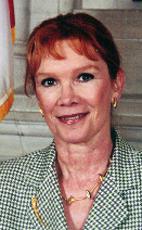Mr. Speaker, all judges of superior courts and courts of appeal in all Canadian provinces and territories are appointed on the recommendation of Cabinet. The Cabinet also designates the judges of the Supreme Court, the Federal Court and the Tax Court of Canada. The government therefore has the political responsibility for appointments to courts of superior jurisdiction across the country.
Today, there are 951 federally-appointed judges. Of that number, 123, or less than 13 per cent, are women. Statistics obtained from the Office of the Commissioner for Federal Judicial Affairs reflect the level of egalitarian concern shown by successive governments during the past 30 years. In the Supreme Court of Canada, which rules on issues of national importance, only two of the nine justices are women. In the Federal Court of Canada, which was established to judge cases involving federal legislation and federal responsibility, both in first instance and on appeal, only five out of a grand total of 35 judges are women.
In the Tax Court of Canada, which may be asked, for instance, to rule whether a woman employed by her spouse is eligible for unemployment insurance, only three of the 25 judges are women. In the country's ten appeal courts, out of a total of 126 judges, the government appointed only 23 women.
In the case of the Quebec Superior Court, the Courts of Queen's Bench of Alberta, Manitoba, New Brunswick and Saskatchewan, the Supreme Courts of British Columbia, the Northwest Territories and Yukon, and the trial divisions in Newfoundland, Prince Edward Island and Ontario, the figures are even more telling: out of 756 judges, only 90 are women.
There are no women on the New Brunswick and Prince Edward Island Courts of Appeal. The five judges of the Superior Courts of Yukon and the Northwest Territories are all men. In New Brunswick again, only two out of the 32 judges on the Court of Queen's Bench and the Appeal Court are women.
Even in Ontario, which has more than 25,000 lawyers, Liberal and Conservative governments appointed only 34 women out of a total of 277 judges of both courts.
One could say that judges are lawyers and that far more men than women belong to the provincial bar associations. This was indeed true in the fifties and sixties, but in any case I would say, first of all, that male/female ratios among lawyers are not relevant when appointments are supposed to reflect society as a whole.
I would also say that this particular argument is becoming less and less factual. The Barreau du Québec has 17,000 lawyers, of whom 35 per cent are women, while the Ontario Bar Association has more than 25,000 members, 20 per cent of whom are women, the ratio increasing to more than 45 per cent among lawyers who have practised law for less than 10 years.
In future, we could assume that the government should have no trouble finding 100 women among the 42,000 lawyers in both provinces for the positions that become available.
Mr. Speaker, the present profile of Canada's judiciary reflects the intolerable discrimination suffered by women in the law profession in this country. One wonders whether this discrimination arises from a political will to keep women out of the judiciary or simply from a mistaken conviction in our society that women had no place in the courts.
In any case, the result is the same, and it is high time we corrected this imbalance by systematically appointing women to the positions that become available in the future.
Ontario was the first Canadian province to admit women to the bar, when it passed special legislation for the benefit of Clara Brett Martin on February 2, 1897.
Quebec was the last province to amend its statutes to admit women to the bar in 1941. It is hard to imagine in 1994 that in 1940, it was perfectly normal and natural to exclude women from social life. It was a time when discrimination was institutionalized. Most women themselves felt it was necessary, and the fact that they were excluded from important positions was accepted as a matter of course.
We cannot explain the imbalance in the ratio of men and women in the judiciary on the basis of their actual numbers within the provincial bar associations. This argument is irrelevant, because there are so few positions to fill that the government can easily find suitable women among the thousands of female lawyers.
Who could argue that it would be impossible for the government to find the right persons among the 6,500 female lawyers in Ontario and the 5,000 in Quebec?
The role of higher Canadian courts is to sanction the laws, to interpret the fundamental texts and very often to decide on controversial issues in our society.
It is totally inconceivable and unacceptable that women should be almost systematically excluded. I urge this House and the government to recognize that time has come to correct this historical aberration.
I urge the government to select and appoint at least 80 per cent women to the positions which will become vacant in the magistrature under federal jurisdiction over the next few years. I am asking for a policy and a law that would facilitate access of
women to the bench, in order to correct the imbalance that has existed since Confederation.
I am only repeating a principle of our law: That justice be rendered and that it appear to be rendered in the eyes of both men and women of Canada.

